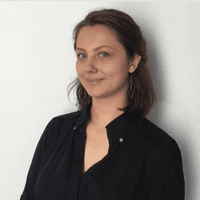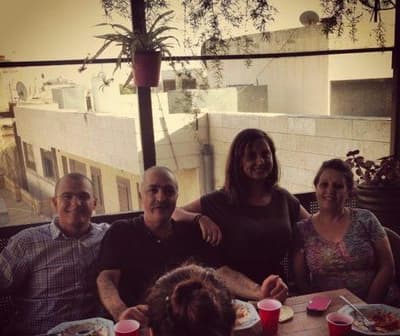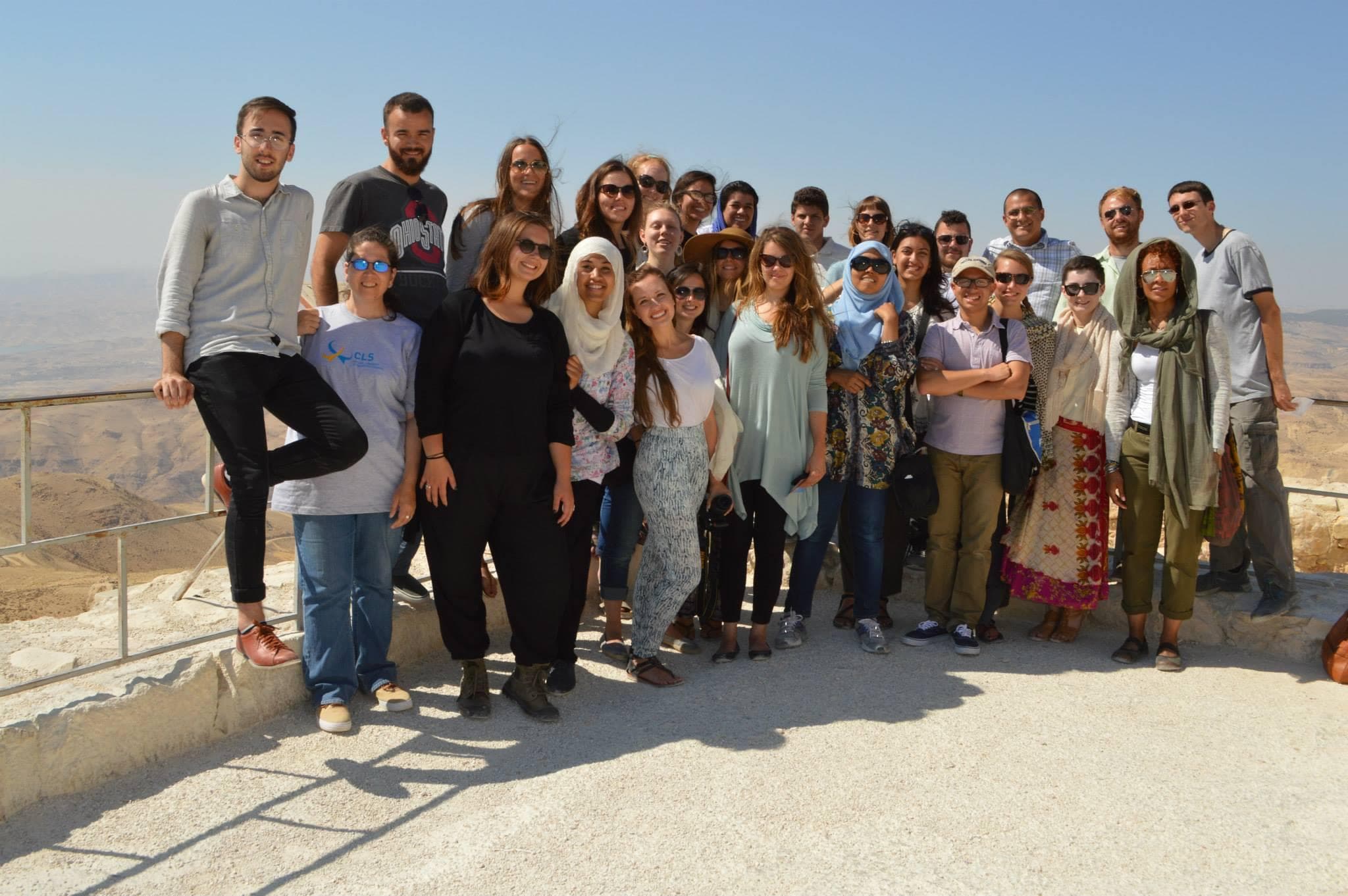Meet Kristen Canavan! Kristen is an alumna of the 2015 CLS Arabic Program in Madaba, Jordan and serves as a CLS Advisor within her role as the Education Abroad Coordinator with the Center for Global Engagement at the University of Michigan-Flint.

As a first-generation college student, Kristen had doubts whether CLS was for her but with the encouragement of a trusted professor applied anyway and to her surprise, received it. CLS gave Kristen the confidence boost to dive headfirst into a master’s degree program in Arabic and design a study and internship abroad program in Tunisia. Kristen’s study abroad turned into nearly four years working overseas in Tunisia in the NGO and nonprofit fields including assisting with public education projects and conducting field work at the Libyan border. Kristen now works as the Education Abroad Coordinator at the University of Michigan-Flint, using her CLS experience and background to encourage students to take the plunge and put their name in the running.
In this interview with Communications Officer Rori DiFiore, Kristen shares how CLS transformed her self-confidence and life trajectory, and why she feels strongly that we need more U.S. citizens to study critical needs languages.

RD: How did you hear about CLS?
KC: My Arabic professor was the one who first told me about CLS. I was telling him how I really wanted to go to Tunisia and continue learning Arabic. I had formed a pen pal in Tunisia as part of my high school French course and traveling there had been a goal of mine ever since. My professor told me how CLS was fully funded program by the U.S. Department of State and how I could study Arabic intensively through it. I had my doubts. I’m a first-generation student. I’m a woman from a regional state school. But he strongly encouraged me to apply. I was shocked when I was notified that I was a semi-finalist. I thought no way I’d make it that far! My boyfriend at the time had also applied and was a semi-finalist. I thought to myself, he's going to get it. He's in advanced studies and already has three years under his belt. He’s traveled to the region before. And then I got it, and he didn't. And CLS, it changed my life.

RD: How did your CLS experience serve as a catalyst for your subsequent experiences abroad?

KC: CLS showed me what was possible. I decided I wanted to go to Tunisia and was committed to making this happen. I did a self-designed study abroad and focused on learning the Tunisian dialect and completed an internship in country. CLS showed me that if you want to conduct research, intern aboard, or learn a dialect, just go for it. If it weren’t for CLS and being surrounded by peers who had done these things themselves, I don’t know if I would have gone for it.
While in Tunisia, I used so many of the skills I had formed on CLS. I would carry a notebook and write down every single word I would hear. I would ask people in coffee shops to write jokes and limericks so I could get familiar with the dialect. While my Tunisian isn’t perfect, I can now communicate in a dialect that only 12 million Arabic speakers around the world know. It has given me insights into Tunisian art and culture that I would otherwise be unable to access. My language skills allowed me to work with Tunisians and learn the intricacies of the country. It’s politics, socio-economic challenges. I learned the nuances of the country from people, which I would never have learned in a book.
RD: Can you tell me more about the challenging aspects of participating in CLS?
KC: It was six hours of intensive Arabic all day. I remember finding it so frustrating learning Arabic syntax and grammar in Arabic. I wanted to ask in English, “is this a preposition or not?” I faced a lot of challenges while I was in Jordan. I was hospitalized at one point. I had to switch host families; I had a family emergency back home. But I thought, “this opportunity is too great. I can’t give it up.” It was one of the most challenging summers of my life, but also one of the most rewarding.
RD: How has speaking a critical language served you in your career?
KC: Having competency in language and culture for both French and Arabic has been key in my career. There is a misconception in the U.S. that you have to be perfectly bilingual in a language in order to use it in a professional context. And that's simply not true. Any proficiency in a foreign language teaches you critical thinking and resourcefulness. You have to really look for meaning in words and language. Even if you do not use your language skills 24/7, studying a language creates this foundation and encourages proactive learning which is a skill that is transferable in any future career. In my position, we have two institutional partners in France so my email exchanges with them are in French, of course. But also, we're currently trying to build new faculty-led programs in the Middle East and North Africa (MENA) region and I know my Arabic language will come in handy. My experience doing intensive language study twice helps me connect with students when I am advising and hosting information sessions. I can tell them look at me, I am first-generation and I’m from Michigan. I did it and so can you.
RD: Why should more students study critical languages?
KC: In my information sessions with students, I drive the point that learning a critical language will be applicable and useful to them no matter where they end up with their career. If you are a researcher in a lab and you have colleagues in another country, you are going to be the go-to-person for that work. That makes you valuable. And besides helping in terms of a career, learning a critical language is so important to our human and interpersonal interactions. For example, here in Dearborn, Michigan we have the largest Arab American population in the United States. I’ve used my Arabic language skills when volunteering with refugee communities or conducting oral history interviews as part of my master's degree, but I’ve also used it in simple everyday interactions at work in Tunisia and in Michigan.
RD: What advice do you have for students who will be participating in CLS this summer?
KC: Turn to the members of your cohort when you feel frustrated, sad, or defeated. It’s so important to tap into the support system you have on-site. Don’t be afraid to ask for help. Also recognize that this is an intense experience and its okay to be frustrated. I remember one day a member of my cohort just breaking down in tears. Those days happened. One day I cried after class just from the frustration. But we had each other to vent to and to provide encouragement. We were the type of people who tend to expect a lot from ourselves. But you had to realize that it was okay to not be the absolute best. This entire experience is meant to challenge you.

Advisor Chat was created to highlight the perspectives of our advisors and showcase the important work they do to make the CLS Program possible. Are you a CLS advisor who would like to be featured in an upcoming Advisor Chat? Email Communications Officer, Rori DiFiore at clsadvisors@americancouncils.org

